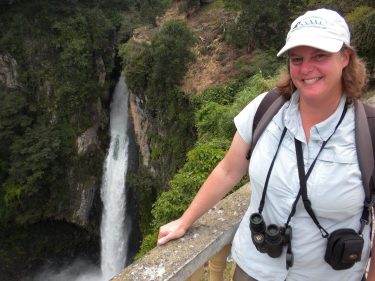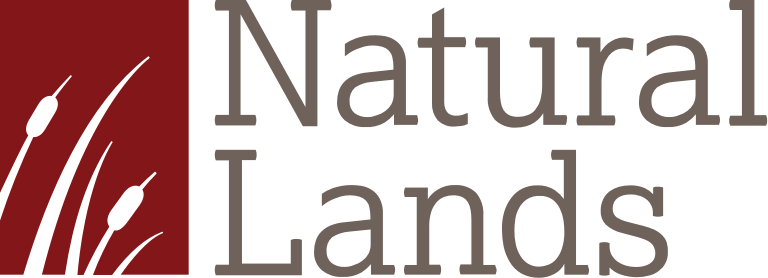Nature Conversations: Beginning Birding
 Today’s expert is Debbie Beer, the Director of Volunteer Engagement here at Natural Lands. An avid birder, Debbie has traveled to a dozen countries for birding and wildlife safaris.
Today’s expert is Debbie Beer, the Director of Volunteer Engagement here at Natural Lands. An avid birder, Debbie has traveled to a dozen countries for birding and wildlife safaris.
Here’s highlights from our conversation with Debbie, originally held on our Facebook page.
Beginning Birding
Debbie: Thanks for joining me to talk about my favorite subject – birds! Birding for more than 25 years is a passion that goes beyond a hobby. Through birds, I’ve met wonderful friends, explored amazing places, and learned so much about the natural world and myself. I enjoy sharing with others, and am thrilled for this opportunity to answer questions and ponder new ideas.
Hi Deb, what binoculars do you recommend?
Invest in a decent pair of binoculars if you plan to pursue birding. Good optics bring the bird closer and sharper than your naked eyes. I recommend Nikon Monarchs – I have 8 x 32 (cost ~$200-250) – excellent quality for the price. The first number is magnification (the object is 8 times closer), the second is lens diameter in millimeters. Larger generally lets in more light, making it brighter, easier to see. Beware that bigger is not always better – heavy binoculars can make your neck ache! Try out binoculars from friends, or in stores. Binoculars in the $100 range may be very unsatisfying.
Is there a good app to help with identifying birds by their call?
There are some great apps to identify birds by sight and sound – they all have audio recordings. My favorite is Sibley and National Geographic Guides. Crossley and Audubon series guides are good too.
I am specifically interested in bird identification, identification of bird song — and also how to tell what is flying in the sky above my head: hawk? vulture? ufo?
The best place to start birding is your own backyard or neighborhood! Birds are found in every corner of the world, and are easy to see, understand, and enjoy.
Hawks overhead take practice. Vultures are a good one to learning. They soar in a “V” shape, compared to other raptors that hold their wings flat across. Vultures also waft back and forth, and rarely flap.
Hi Deb! Any good book recommendations to get kids interested and excited about birding?
Great question! Take kids outdoors, and ask them to look and listen for birds. Get them kid-size binoculars (adult ones are too heavy, and they’ll not wear them). There are some great field guides for young birders. I recommend “The Young Birder’s Guide” by Bill Thompson III.
How did you get into bird watching?
I’ve been birding for 25+ years. I used to be an avid hiker and started noticing birds. I went on a group bird walk with a small organization to Bombay Hook National Wildlife Refuge. I saw Bald Eagles, avocets, ducks, and was instantly hooked!
How can we help our backyard birds. Are feeders a good idea year round?
The best way to help our backyard birds is to provide food, water, shelter (cover), and places to raise young. Plant a variety of native shrubs, trees, and perennials that support insects and produce fruit and nuts. These are crucial for birds to survive. Oaks are considered the premier tree for diversity of insects to sustain a variety of birds!
Debbie, do you have a favorite backyard bird that most people might see if birding?
It’s so hard to choose a favorite, but I really like Carolina Wrens. These lively little birds have a big personality, singing “tea kettle-tea kettle- tea kettle” from atop my brush pile. They are widespread and found in many backyards and wild green spaces.
